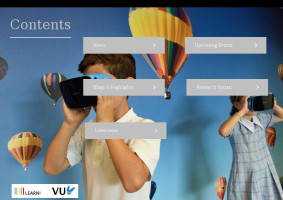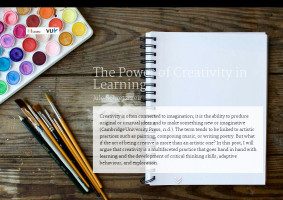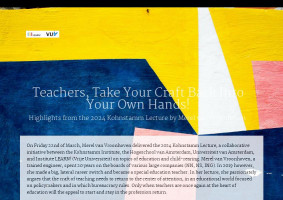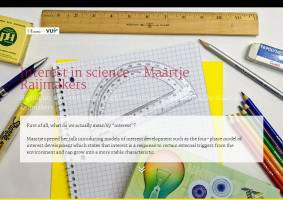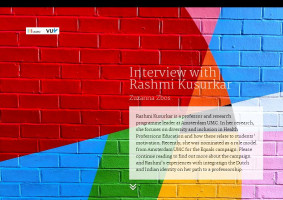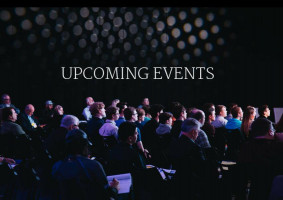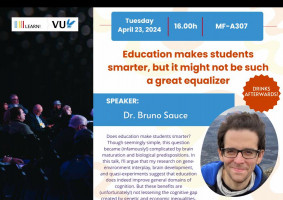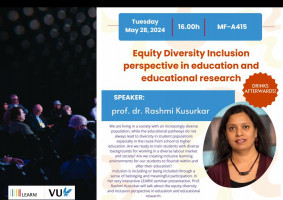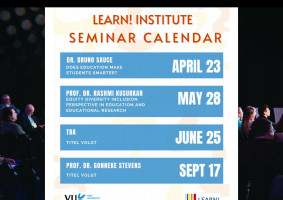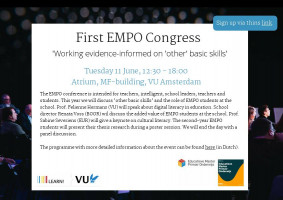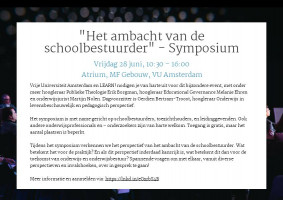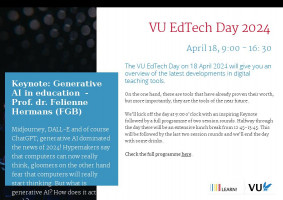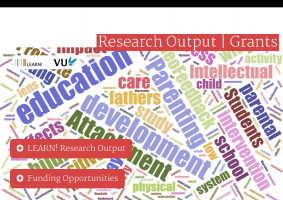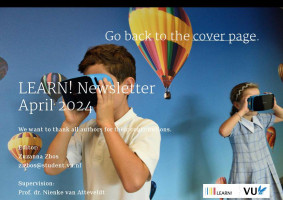On Friday 22nd of March, Merel van Vroonhoven delivered the 2024 Kohnstamm Lecture, a collaborative initiative between the Kohnstamm Institute, the Hogeschool van Amsterdam, Universiteit van Amsterdam, and Institute LEARN! (Vrije Universiteit) on topics of education and child-rearing. Merel van Vroonhoven, a trained engineer, spent 20 years on the boards of various large companies (NN, NS, ING). In 2019 however, she made a big, lateral career switch and became a special education teacher. In her lecture, she passionately argues that the craft of teaching needs to return to the center of attention, in an educational world focused on policymakers and in which bureaucracy rules. Only when teachers are once again at the heart of education will the appeal to start and stay in the profession return.
In her speech, Van Vroonhoven draws her audience in immediately. She reminds us of the power of teaching, by bringing us back to our own time at school and to those teachers that had the biggest impact on us. With this, she opens powerfully with a message that will color the rest of her talk: ‘everything stands and falls with the teacher’. In a fast, performance-oriented educational world where inequality reigns, she believes that teachers have a crucial role in fighting for a better future. When teachers create an inclusive learning climate and see beyond the differences in their student’s backgrounds, they can have huge impact. However, a crisis in the teaching world, with many leaving the profession and a chronic shortage of teachers, hinders this.
When Van Vroonhoven meets with ex-colleagues from before her time in the classroom, they often comment that teaching must have led to a more laid-back workweek for her. However, this could not be further from the truth. In fact, the burden of workload in combination with increasing stress in the profession are the top reasons for teachers to leave the classroom. Limited opportunities for personal and professional development come in at a close second. As a result, many teachers close to or with burnout choose to leave the profession permanently or in pursuit of self-employment. While this problematic state of the educational world, together with drops in student literacy and numeracy, may briefly reach headlines, it quickly returns to the back of our collective mind.
Here, Van Vroonhoven highlights the inspiring work of Afghan activist Laila Haida, whom even a corrupt government cannot stop in bringing education to adolescent girls. Education is worth risking your life for. But why then are we taking it for granted? With education receiving little to no attention during the recent elections and current formation of government, a society in which low literacy and numeracy are increasing steadily, should be cause for major concern.
Van Vroonhoven believes our approach to education is part of the problem. She argues that we created a system where bureaucratic burden and overwhelming workload put high pressure on teachers. Furthermore, we use limited criteria captured in multiple choice tests, designed to optimally track average development in school, as a base to determine societal status. Based on these criteria, children are sorted into categories from a very early age. Van Vroonhoven argues that this system leads to winners and losers, in which a university degree is idolized, and vocational education is stigmatized. This is unjustified and dangerous: our society needs craftsmen. More importantly, it creates the risk of young individuals developing rigid ideas regarding their worth, simply based on where they grow up or the wealth of their parents.
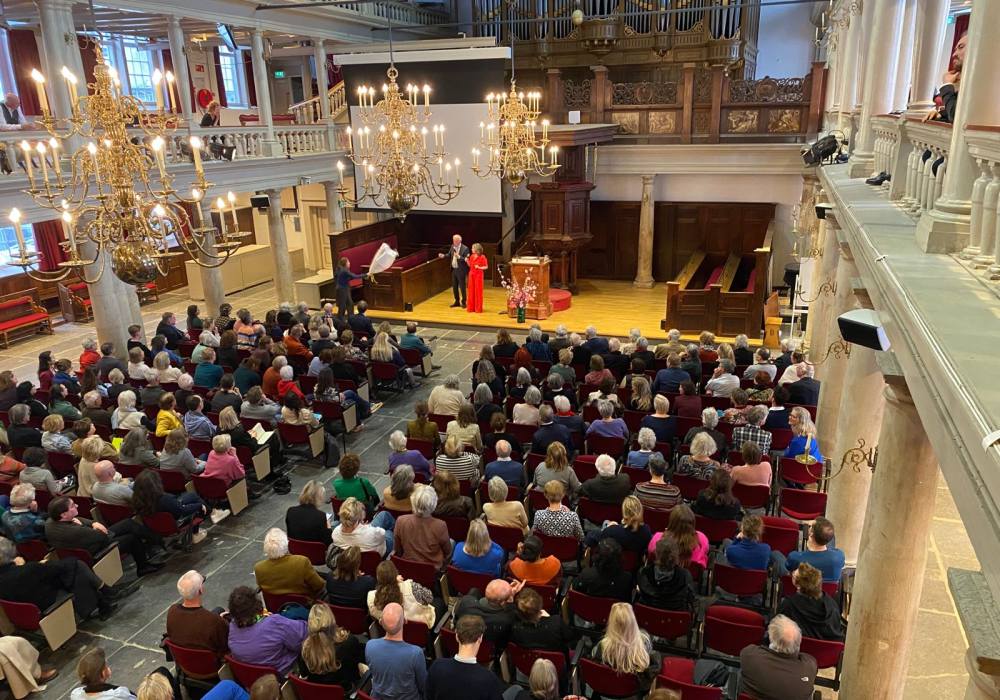
With these convincing arguments, Van Vroonhoven criticizes our current educational system. But how can we change the system and create a better, and more equal future for our youth? Van Vroonhoven makes the plea to radically change the value of the craftsmanship that is teaching. Additionally, she demands a fundamental reversal of the current educational system: switching from a focus on the administrator to the teacher. With this, Van Vroonhoven suggests that the teaching profession be put central to education, focusing on content and craftmanship rather than the fulfilling of rules and administrative tasks. She argues that for good teaching, we need to start relying on the expertise of those professionals directly engaged in the craft. She demands of teachers: ‘take your profession back into your own hands!’. Only when teachers stop merely performing bureaucratic rules made by administrators that often don’t have first-hand experience, and rather, start demanding time for the craft itself, can we move towards higher quality and satisfaction in the teaching field. For her, this switch in focus entails more time for professional development, to prepare classes and focus on teaching content rather than completing bureaucratic tasks. She thereby asks teachers to take responsibility for their own profession, to ‘raise the bar’. Importantly, van Vroonhoven highlights a potential ‘medicine’ to the current system: a strong teacher alliance, which currently is lacking in the field. With this, she believes a system in which both teacher and student curriculum are centralized and quality-controlled, can arise. With these words, she gives teachers a will to fight for their craft and a method to do so.
To those in government, Van Vroonhoven has sharp advice: ‘flip the system’. Rather than focusing on the administrator, she argues that the teacher should be central in the educational system. She also demands that vague propositions in education reports be replaced with specific advice. For instance, teacher education should focus on training quality, rather than quantity of trainees. She explains that creating strict requirements for teachers and school management through consistent, external assessment can prevent lack of expertise and effective leadership.
Finally, Van Vroonhoven speaks to those who, perhaps, have the most immediate impact: those in school boards and policy making. She implores them to fight for teachers to come back to their profession again, and to ensure that our youth sees a future in teaching again. Though she is not a fan of ‘curling parents’, she wishes for more ‘curling school boards’ - school boards that remove bureaucratic and practical obstacles to excellent teaching.
To conclude her lecture, Van Vroonhoven comes back to those that inspire her every day, that fuel her fire: her students. With an anecdote, she powerfully demonstrates that the questioning of her decision to move from the financial world to the teaching profession only makes her passion for the field grow. And it is not only her own passion that is sparked. After her lecture, the audience buzzed with new inspiration and a will to fight the system. In the audience’s often emotional questions to her, it became clear that her words gave space to feelings that have been growing in many for a long time. With her speech she strengthens a movement that she started by turning her back to the finance world and opening her heart to education. A movement towards equality in education, and a path towards the passion of teaching.
The full text and recording of the lecture can be found on the Universiteit van Amsterdam website (in Dutch).
Written by:
_w400_h500_1.png)
_w400_h500_1.jpg)

